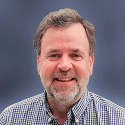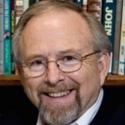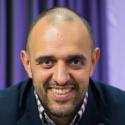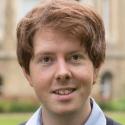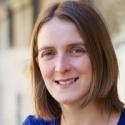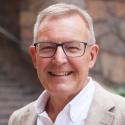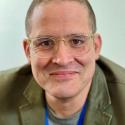2023 Apologetics (Advanced) Network
- Image
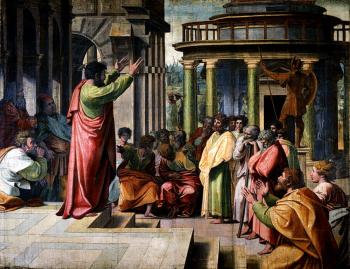
What did the Apostle Paul do when Pre-Christian Europe was pagan, relativistic, and pluralistic? He did apologetics among his contemporaries; Paul went to the Jews arguing from the Old Testament Scriptures that Jesus was the Christ and to the pagan Greeks using their literature and cultural artifacts to argue that the "unknown God" has been revealed and proclaimed in Jesus.
21st century Europe is in a state very similar to Paul's time and needs gifted apologists who can demonstrate that Christianity is true and relevant. Therefore, the vision of the European Apologetics Network is to train a new generation of apologists who can stand in today's marketplace of ideas in the way that Paul did in his generation. Our desire is to develop apologists who will testify to the truth of the Gospel with wisdom, versatility, and courage in their efforts to persuade their contemporaries.
The Advanced Apologetics Network has been reformatted to function as an interactive learning experience that flows with a common theme. Based on participants’ feedback, the new format will provide three essential components to support apologetic endeavor in Europe:
- Knowledge: Network participants will learn from leading apologists, philosophers, and scientists, being equipped to engage some of the crucial issues of our time with fresh perspectives.
- Skills: Our updated format includes an emphasis on practical skills development. Participants will be challenged to put into practice what they've learned in interactive formats, including developing arguments and content ideas.
- Community: By joining the Network, participants become part of a community of apologists. The new Network design will provide opportunities to connect with like-minded Christians, exchange know-how, and work together on future collaborations. We envision that this community will continue throughout the year online.
Applicants should be those with evangelistic or apologetic gifts who have first attended the European Apologetics Network: Foundational Track and the European Evangelism Network. The purpose of the Network is to train, mentor, equip, and resource those evangelists and apologists who are seeking to communicate the Gospel in their local communities. Prior preparation will be set for all applicants.
Network Leadership
Network Speakers
Max Baker-Hytch received his PhD in Philosophy from Oxford University in 2014 and subsequently held two postdoctoral research fellowships, one at Oxford (2014-15) and one at the University of Notre Dame (2015-16). Since 2016, he has been Tutorial Fellow in Philosophy at Wycliffe Hall, Oxford… Read more
Sharon Dirckx is an independent speaker, author and broadcaster whose work focuses on responding to the spiritual questions that people ask today. Originally from a scientific background, she has a PhD in brain imaging from the University of Cambridge and has held research positions in the UK… Read more
Andrew Fellows was appointed pastor of a church in Bradford, West Yorkshire in 1988 where he served for seven years. In 1995 his family moved to the English branch of L’Abri Fellowship, where they lived and worked for 21 years. From 2011 to 2016 Andrew was the chairman of L’Abri International.… Read more
Stefan Gustavsson is a member of the European Leadership Forum Steering Committee. He is the director for Apologia – Centre for Christian Apologetics and makes his home in Stockholm. He was the founding general secretary for 16 years of the Swedish Evangelical Alliance. Stefan travels widely… Read more
Mihail Stefanov is the assistant pastor at Crossroad’s Church Sofia (crossroadchurch.bg) and the founder of Culture and People (cultureandpeople.eu) – an international consulting firm helping global business leaders transform the culture of their organizations. He has a deep passion for… Read more
Daniel Strange is director of Crosslands Forum, a centre for cultural engagement and missional innovation. Formerly he was college director and tutor in culture, religion, and public theology at Oak Hill College, London. Strange is a contributing editor for Themelios, Vice-president of The… Read more
Network Programme
Sunday, 21 May
The worldview, this hidden network of beliefs that drives our lives, is a key to decrypting every human being's perspective towards the world. In this session we will discuss how to use a specific ‘listening’ process for discovering worldview beliefs as a powerful generator of apologetic insight.
What it means to be human is at the forefront of an extensive cultural discussion happening today. Given the subject matter is about us, no one can be indifferent. This talk explores why and how anthropology is a critical apologetic bridge to build with sceptics today.
Monday, 22 May
Much of the impetus for the worldview of naturalism comes from the apparent success of science in progressively edging out teleological explanations and replacing them with explanations that are framed exclusively in terms of physical mechanisms and forces. But what happens when naturalism attempts to take the final step in its journey, and explain consciousness and reason — which are the very conditions of our being able to do science — in purely physicalist terms? In this session, we examine the ways in which consciousness and reason pose a fundamental challenge to naturalism, resisting its attempts to fit them into its categories.
Advanced forms of cardiac- and neuro-surgery, made possible only in recent decades, require the patient to be put into a state of reversible clinical death. Upon resuscitation, a significant number of patients began to describe (in verifiable ways) having been conscious during surgery, despite having no detectable brain waves or heart beat. What are Christians to make of these observations? What are the critiques that a reductive physicalist might raise, especially in light of the prevailing view in neuroscience that without a functioning brain you cannot be conscious? This session will examine and discuss the phenomenon of near-death experiences.
Tuesday, 23 May
Since the 1960s, the sexual revolution has swept the Western world and radically changed the way people think about sex and how they choose to live sexually. Previous assumptions about the importance of connecting sex with love and marriage, of excluding same-sex romantic relationships as well as polygamous or polyamorous relationships are now abandoned. How can we as Christian dialogue with and give an answer to the challenge posed by the sexual revolution?
As Christians how do we get analytical and apologetic traction with our contemporary culture(s)? In this session, and using specific examples, we will outline the 'subversive fulfilment' framework for cultural engagement, spotlighting the tool of the 'magnetic points' put forward by the Dutch Reformed missiologist J.H. Bavinck.
Wednesday, 24 May
The final day will be entirely allocated to practice and method. This will include group assignments and role play to help cultivate how we practically function as apologists.
This session will be a continuation of the previous one. We will close by brainstorming on how we can collaborate and support each other throughout the coming year.

